SustainIT Newsletter 1/2021
Dear readers,
We are excited to introduce you the first newsletter of the project SustainIT – Releasing the Potential of ICT for Sustainable Milk and Beef Cattle Value Chains. The newsletter summarizes up to date information on the project results, its past and ongoing activities and events, and related developments and other projects working on the ICT challenges in agri-food value chains. SustainIT newsletter will be published twice a year.
The newsletter is intended for the stakeholders of beef and milk value chains, ICT sector and academia as well for the general public and media. With the newsletter, we want to raise awareness about the potential of ICT and its barriers in beef and milk value chains; to promote the dialogue with value network stakeholders and engage them in networks and co-creation activities; and to facilitate the transfer of knowledge on the ICT in agri-food sector and on the utilization of the multi-actor approach to address the challenges in the value chains and show case the potential solutions.
The first newsletter will provide a snapshot of the project aims, its main concepts and activities. The project partners have been busy with the elaboration and operationalization of the project concepts, discussion on the details and protocols of data collection, organization of training and collecting background data for the kick off of the SustainIT Living Labs, starting outreach to the value chain stakeholders and with the preparation of the communication and management procedures.
The project is implemented by five partners in four countries: Estonian University of Life Sciences and Estonian Dairy Cluster in Estonia, University of Oulu in Finland, Halmstad University in Sweden and Technical University of Munich in Germany. In each newsletter we’ll also introduce one partner and their other projects relevant to the topic.
We hope that the SustainIT newsletter will provide you interesting and through provoking information.
With best regards,
Dr. Ants-Hannes Viira
SustainIT coordinator
SustainIT in a nutshell
The agri-food and public sectors have placed great expectations towards the ICT in transforming the data exchange and operating practices in agri-food value chains. The ICT holds a lot of promise for helping to address the societal, economic and environmental pressures related to the climate change, antimicrobial resistance and animal welfare, diets of consumers and accountability of the producers. However, the practical implementation of ICT in the agri-food sector has been complex and riddled with challenges such as the data access, ownership and interoperability, skills of the stakeholders, lack of ready-made and user-friendly solutions for the end-users, costs of ICT, inconsistent public policies, and lack of business model innovation.
The project SustainIT addresses those challenges by:
- identifying institutional, economic and social barriers for widespread adoption of ICT in relation to animal health and welfare;
- developing conceptual business models and policy recommendations for governance of innovation ecosystems to release the full potential of ICT in dairy and beef value chains.
- The project aspires to create new knowledge on ICT barriers, to understand the present experience and to find new solutions for all stakeholders through development of ICT innovation ecosystem and stakeholder engagement in the Living Labs.
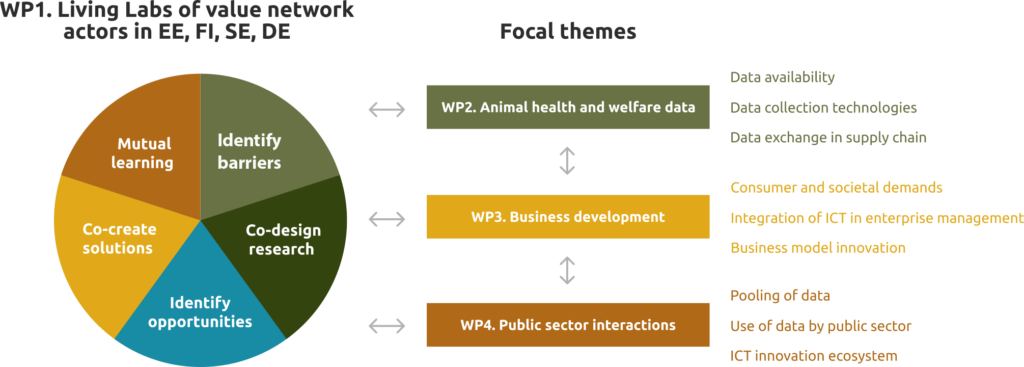
The project is implemented through interconnected set of activities organized into four main work packages (WP) for the focal activities, and into two supporting WPs for communication and management.
SustainIT Living Labs (WP1) provide the platform for the stakeholder engagement. The Living Labs are set up in the four participating countries (Estonia, Finland, Sweden and Germany) and will engage various value network stakeholders like farmers, ICT developers, technology providers, veterinarians, processing industry, retailers, public policy makers, consumers and researchers. This multi-actor approach will bring together insights and knowledge of different actors, create new understanding on the pressures and challenges on different stakeholders, and will create a basis for mutual learning and co-creation of new solutions and networks.
Animal health and welfare data (WP2) focuses on analysis of the availability of data on animal health and welfare in the four countries, on the assessment of the existing structures, data collection, technologies, data access and exchange approaches, identification of the data needs of different supply chain actors.
Business model development (WP3) will address the consumer and societal demands and new conceptual business models. The research will focus on analysing the opportunities and barriers related to connecting producers with the end-consumers, and on capturing the value from the customers. This will be utilized by addressing the business model innovation related to ICT in dairy and beef value chains.
Public sector interactions (WP4) encompass the role of public sector in pooling of the data, in facilitating or hindering the access to animal health and welfare data and in regulating and supporting the development of the ICT innovation ecosystem for agri-food sector.
Project progress
Starting with Living Labs
There has been a significant uptick in the interest towards using the Living Lab as a method for stakeholder engagement and for innovation ecosystem creation, particularly in the Horizon2020 and other EU programs. The Living Lab approach is based on bringing together and actively and openly involving multiple stakeholders starting from the early stages of research, development and innovation processes. The multiple actors bring in various knowledge and experience, and the Living Labs provide them with framework for exchange of this knowledge, opportunities to learn from each other, build new networks and to work together in co-creating novel solutions for their challenges.
The SustainIT project views Living Labs both as a tool as well as an outcome. The Living Labs systematically involve the different stakeholders, organize co-learning and co-creation activities and thus are an instrument for collecting information and finding new solutions. But the Living Labs also create new networks, provide stakeholders with new skills and information, thus will build up new synergies and an innovation ecosystem that will continue on after the end of the project.

The Living Labs have two-layered structure in the project:
- Partners of the consortium form the core research team for the Living Labs in their country. The teams will set the research questions for the Living Labs and select the research approaches, organize and facilitate the stakeholder engagement activities in the Living Labs settings, document the process and outcomes.
- County Living Labs are multi-stakeholder platforms that refer to the stakeholder group and their collaboration activities that will focus on the ICT adoption challenges, opportunities, and solutions providing both inputs and feedback to core research team.
Activities on the development and implementation of the Living Labs are led by the team from the Technical University of Munich. In the first half of 2021, the activities of the Living Labs concentrated on:
- Elaboration of the concept, methodology and documentation procedures.
- Training and coaching the consortium partners and Living Lab leaders in thinking in new ways, networking, managing non-linear knowledge flows, change and innovations. A training workshop was held for the partners on coaching and team building on 16-17 June 2021.
- Setting up the Living Labs frameworks by starting with stakeholder engagements, setting schedule for further stakeholder meetings.
 Eyes on the data
Eyes on the data
Digital agriculture, precision farming and smart farming, big data have been the buzzwords in the last decade. Mobile phones, computers, constantly expanding range of different farm monitors, applications and technological devices collect a huge amount of data. It is anticipated that use of this data would increase the farm productivity and efficiency, reduce the costs and labour, minimize the waste and optimize the resource use, pinpoint how to increase the animal welfare etc. leading to more sustainable farming practices as well as open up new revenues and create a ground for further technological and social innovations. However, so far, the ability to utilize this data, has not kept up with the pace of the data generation. The challenge is not only in that the farmers often cannot easily access or utilize the data their devices collect. There is also an ever-increasing demand on farmers to report their data to various databases for public oversight and statistical data collection. As those databases often cannot exchange data or do not provide easy data exchange with farm level information systems, this creates additional burden to the farmers as the data generators.
WP2 focuses on the challenges of related to data bases, collection, access and exchange of the animal health and welfare data. More specifically, the spotlight is on the medical health data on animal diseases and treatments collected by veterinarians and farmers, and on the data collection for prevention and early identification of health and welfare problems.
The WP2 activities are led by work team from the Unit of Measurement Technology at University of Oulu. The team has extensive background in developing on-line sensors and point-of-care biosensors for various applications including farming and farm management.

The activities on the first half of 2021 concentrated on:
- Data availability: the University of Oulu team started by creating methodology and procedures for the partners for the collection of information on the availability the data in the partner countries. Partners proceeded with gathering data on what are the main databases, what kind of animal health and welfare data and from whom is collected, how are the databases funded, who has access, what kind of access and availability stakeholders have.
- Data technologies: the work started on elaborating the methodology and starting data collection on the technologies for collecting data. The research focuses on the questions of what data parameters are collected for the animal health and welfare monitoring, what are the main technological challenges and how can connectivity, calibration and standardization of collection technologies and devices improve.

Project events
Project kick-off on January 22nd 2021
The official kick-off meeting of the SustainIT project took place virtually on 22 January 2021. The main agenda was to meet the extended team members of all partners, and concept and agree on the work plan for the next six months.
The five partners of the project have had experience in working with some other partner in previous projects, but this is the first project in which all are involved in the same project. The expertise of the partners is complimentary and mixes the knowledge and experience in technology and measurement, agri-food value chains, farm management, innovation, governance and policy research with strong networks in agri-food sector. This provides a good ground for further tackling the challenges.
Coaching training by Diana Sendlak Brundin
In order to effectively coordinate the Living Labs and to engage value network stakeholders, the SustainIT partners started sharpening their leadership skills. Diana Sendlak Brundin from Halmstad University conducted a virtual workshop on 16-17 June 2021. The general aim of the training was to develop partner’s skills for coaching, group development and for providing feedback.
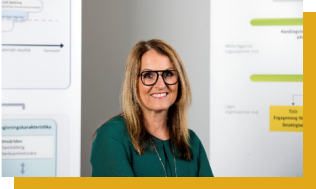
Diana Sendlak Brundin
The training kicked off by addressing how to create an environment conducive to thinking and coaching. As the Living Labs engage stakeholders with very different backgrounds and various and sometimes conflicting interests, the role of the partners is to facilitate the interactions while creating a productive and safe environment for exchange of ideas. The aim of the coaching is to support the individuals or teams in reaching their goals by encouraging their learning, thinking, skills development. This requires skills for listening the coachees and asking them powerful questions in order to develop their understanding on their goals and the path to reach those. The topic of feedback covered both giving and receiving constructive feedback. The team building requires establishing the shared goals and tasks and matching those with learning, resources and responsibilities.
Spotlight on project partners
Estonian University of Life Sciences
Estonian University of Life Sciences (EULS) is the project coordinator. EULS is the only university in Estonia with strong focus on the bioeconomy. The university has 3000 students and it specializes on teaching and research in rural economics, agriculture and environmental studies, veterinary medicine and animal sciences, technology and engineering, and forestry. The SustainIT project is coordinated by the Institute of Economics and Social
Sciences that focuses on education and research in agricultural economics and policy, rural entrepreneurship, cooperatives and collaboration, marketing, accounting and financial management. The EULS team has long experience in engaging stakeholders of the agri-food value chains and the public sector. The EULS team has previously prepared the background report for the OECD review “Innovation, Agricultural Productivity and Sustainability in Estonia”; developed and evaluated strategies and policy in the agri-food. EULS has ongoing cooperation with Estonian Dairy Cluster on projects “Implementation of herd health management programme”; “Incentives provided by raw milk pricing models to improve milk quality”; “Feeding cost optimization model for dairy farms”. Previous projects with Halmstad University included the “FARMENT – From Farmer to Entrepreneur”; and INTERREG Baltic Sea Region project “BalticBiomass4Value”, focusing on business models in bioeconomy. EULS has collaborated with the Technical University of Munich for the OECD report “Dynamics of dairy farm productivity growth: Cross-country comparison”.
EULS team members in the SustainIT project are Dr. Ants-Hannes Viira, Mr. Martin Kukk, and Mrs. Ranjana Hegde.
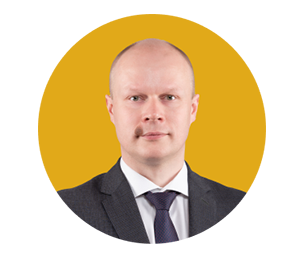
Dr. Ants-Hannes Viira
SustainIT coordinator
ants.viira@emu.ee
LinkedIn
ResearchGate
Google Scholar
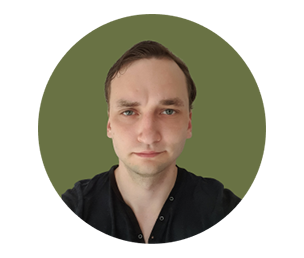
Mr. Martin Kukk
Public sector analysis coordinator
martin.kukk@student.emu.ee
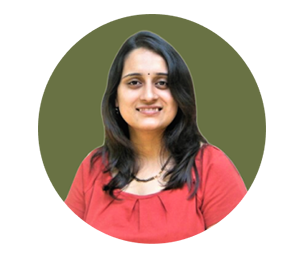
Mrs. Ranjana Hegde
Project assistant
ranjana.hegde@emu.ee
Upcoming SustainIT activities
In September-November 2021, partners will organize country Living Labs meetings to present results of the project on mapping the current animal health and welfare data availability and collection, and identify barriers for digitalization in this respect.
On 19-20 October, The Animal AgTech Innovation Summit will be held. Kerli Ats, CEO of Estonian Farmers’ Federation, and member of the European Economic and Social Committee will speak during a VOX POP session on ‘The Farmer’s Voice’ about the main challenges they face, and their experiences in adopting new technologies.
On October 22-24, Estonian University of Life Sciences, Garage48 and Estonian Research Council with the support of different partners are holding a hackathon of food technology called Garage48 Food 2021. The aim is to find new solutions to the different challenges in the food industry. The hackathon welcomes bio- and food technologists, food safety professionals, food policy experts, entrepreneurs, developers, marketers, business visionaries, and (UX/UI) designers.
Newsletter editor and contact
Anne Põder, Estonian Dairy Cluster anne.poder@piimaklaster.ee
More information from: www.sustainit.ee
News in: LinkedIn

